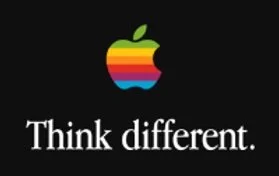Balance as a Universal Value
The students of the world desperately need to study a value-based universal curriculum which would include chunks of both the spiritual and secular and, therefore, be called Orenda. It’s principle doctrine – or at least one of its primary ones – would be balance as a universal value.
We continually have to make balance decisions. Too much food is bad, but so is too little. Too little sleep is unhealthy and exhausting, but too much of it is a waste of precious minutes. Too little exercise is an obvious sin, but over training leads to a host of health troubles.
Although finding balance in eating, sleeping and exercising may be excruciatingly difficult to execute, each is understandable and quantifiable. We can count calories, measure hours slept and monitor workouts with a fitness tracker. There are concrete standards and goals – three thousand calories, eight hours, five miles.
But what about the balance decisions we need to make when there aren’t standards? For example, exactly how should we balance the praise and criticism we give to our children and students? Too much praise and they become arrogant and less likely to risk failure. Too little and they’ll lack self-esteem and lose motivation.
How much should the government regulate? Too much and we have a stifling bureaucracy. Too little and a lot of people will act atrociously.
The latest one I personally struggle with, especially when it comes to teaching and intrapreneurship, is sui generis – Latin for “of its (his, her or their) own kind; in a class by itself; unique.”
Just how much should we try to be our own kind, in a class by ourselves and unique? On one hand we tell ourselves and teach others to stand apart from the crowd. Think Different was Steve Jobs’ mantra. “A lot of times people don’t know what they want until you show it to them,” he said. Charles Geschke, founder of Adobe, thought that way, too. People didn’t know they wanted to photoshop until there was Photoshop.
On the other hand, Kenny Gamble and Leon Huff wrote the O’Jays classic anthem “Give the People What They Want.” Should we? Should we trust what they want enough to give it to them? Do people know what they want? Do students know what they want – or need?
As with most quandaries, the answer is probably a balance between the extremes. In this case it’s finding a way to give people some of what they want but at an equal amount of what they need.


